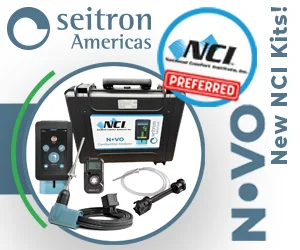6. Foster a Culture of Continuous Improvement — Encourage Lifelong Learning: Promote a culture where continuous learning and improvement are valued. Encourage employees to seek out new knowledge and skills. — Reward Initiative: Many contractors understand the importance of recognizing and rewarding employees who take the initiative to further their education and skills. This can be through financial incentives, public recognition, or opportunities for advancement.
7. Provide Clear Communication and Transparency — Communicate Opportunities: Contractor Tom Johnson discusses the need for clear communication in your company. He suggests to regularly communicate available career opportunities and paths within the company. That includes keeping employees aware of what it takes to move up the ladder. — Transparent Criteria: Be transparent about the criteria for promotions and advancements. Employees should clearly understand what is required to progress in their careers.

8 Offer Competitive Compensation and Benefits — Align Rewards with Career Progression: Ensure that compensation and benefits packages are competitive and aligned with career progression. This includes salary increases, bonuses, and other incentives for achieving career milestones. This is something that former Service Roundtable CEO Matt Michel often writes and talks about. — Health and Retirement Benefits: Provide comprehensive health benefits and retirement plans to ensure the long-term well-being of your employees.
9. Promote from Within — Internal Promotions: Whenever possible, promote from within the company. John Boylan calls this internal branding which shows employees that there are real opportunities for advancement and that their hard work can lead to career growth. — Succession Planning: Develop a succession plan to ensure that there are qualified internal candidates ready to step into key roles as they become available.
10. Gather Feedback and Adapt — Employee Feedback: Regularly seek feedback from employees on the career development programs and pathways. Use this feedback to make improvements and adjustments. — Monitor and Measure: Continuously monitor the effectiveness of career paths and development programs. Measure outcomes such as employee satisfaction, retention rates, and performance improvements. As NCI’s Dominick Guarino is fond of saying, “If you don’t measure, you’re just guessing™.”
The Benefits are Wins for EVERYONE
Creating career paths through in-house training programs in an HVAC company requires a strategic and systematic approach. By investing in the development and growth of your employees, you can build a more skilled, motivated, and loyal workforce.
This not only enhances individual career satisfaction but also drives the overall success and competitiveness of your company. It can also be your answer to the technician shortage currently plaguing the HVAC Industry.













Recent Comments